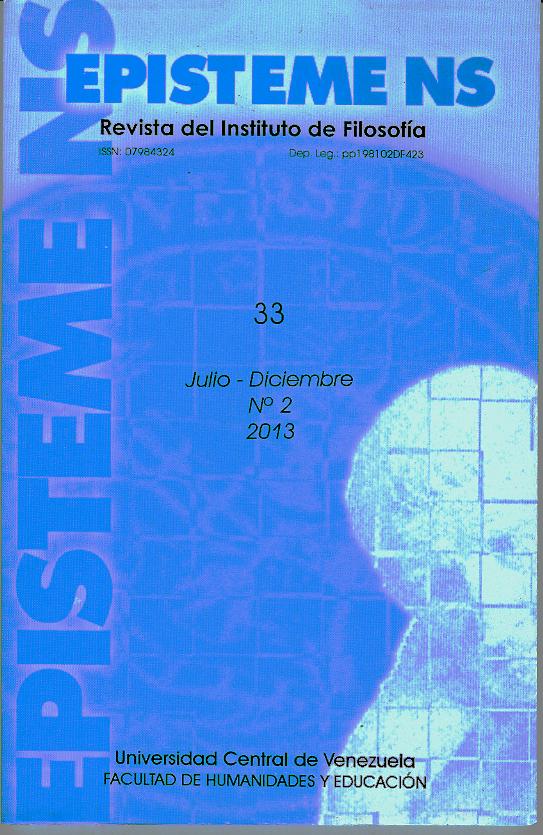HARDT Y NEGRI EN AMÉRICA LATINA: DESENCUENTROS SOBRE LAS FORMAS DE INTERPRETAR EL PODER
Palabras clave:
imperio, multitud, bien comúnResumen
El objetivo del presente ensayo consiste en mostrar la recepción de la obra de Hardt y Negri en algunos representantes de la crítica latinoamericana,
considerando aspectos fundamentales relacionados con los debates que han surgido en torno a las formas de interpretar la colonialidad del poder. Nos ocuparemos, brevemente, en primer lugar, del debate que se ha producido en torno a la ideas de Imperio y Multitud en el marco de la interpretación política de la modernidad. Para ello, consideraremos las interpretaciones de Santiago Castro Gómez, Walter Mignolo y Ernesto Laclau. Y en segundo lugar, nos referiremos al debate que ha surgido en torno a Commonwealth en el así llamado paso de la modernidad a la postmodernidad. Aquí nos detendremos un poco más con el fin de referirnos a la así llamada apropiación que habrían realizado Hardt y Negri de la crítica latinoamericana. Nos interesa mostrar que si bien Hardt y Negri se han convertido en importantes interlocutores de algunos sectores de esa crítica en atención a los debates antes mencionados, predominan desencuentros teóricos e ideológicos originados en concepciones de la modernidad y el colonialismo ancladas en narrativas desiguales en torno al sentido y futuro de lo político.
Abstract: The purpose of the present article is to present how Hardt and Negri’s work has been perceived by some representatives of the Latin-American critic considering some fundamental aspects related to the debates arising from the ways of interpreting the coloniality of power. Here we will briefly address two issues: in the first place, the discussion that has come about the ideas of Empire and Multitude within the political interpretation framework of modernity. For this we will consider Santiago Castro Gómez, Walter Mignolo and Ernesto Laclau’s interpretations. Secondly, we will highlight the debate surrounding Commonwealth in the so-called transition from modernity to postmodernity. Here we would like to address the appropriation that Hardt and Negri would make of the Latin American critic. We’d like to emphasize that although Hardt and Negri have become very important partners of some sectors of this critic, theoretical and ideological disagreements predominate based on different conceptions of modernity and colonialism rooted in unequal narratives around the sense and future of the politics.

